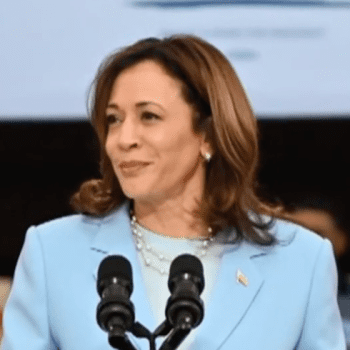The Adventurous Lectionary – Thirteenth Sunday after Pentecost – August 18, 2024
I Kings 2:10-12; 3:13-14; Psalm 111; Ephesians 5:15-20; John 6:51-58
Give me a heart of wisdom! Give our leaders a heart of wisdom! Give our political candidates a heart of wisdom! Wisdom seems hard to come by in our personal lives and the body politic that reflects our values. When we critique the state of the American political scene, we best look in the mirror: we ourselves need to confess our small-mindedness, incivility, and self-interest even as we critique prevaricating politicians, for whom no bar of morality seems to low.
In the context of our personal and political lives, this week’s readings focus on the dynamic interplay of divine and human wisdom. God is still speaking, providing insights for the short haul and the far horizons. Human wisdom is grounded in our attentiveness to divine creativity evidenced in the heavens above, the earth upon which we live, and the divine movements in our body, mind, and spirit. Alignment with divine wisdom – and not our own individualistic and self-interested projects – brings true joy and promotes healthy community. Divine wisdom takes us from self-interest to world loyalty. To find peace in our hearts and communities, we need a wider vision that shapes both the micro and macro aspects of our lives and political and economic involvement.
If you have wisdom, you have everything. Would that our national leaders took Solomon’s prayer seriously. In a moment of self-transcendence in political life, he doesn’t ask for wealth or power. He doesn’t want to subjugate national wellbeing to political gain. He recognizes his inexperience and asks for something much more important – an understanding mind or what mystic Etty Hillesum describes as a “thinking heart.” Wisdom and understanding give us a spiritual GPS that joins the ideal and actual, the possible and the concrete, the big picture and the daily details.
Wise leadership looks beyond the moment to see what is best for a family, congregation, community, or nation. Decisions are made, inspired by seeking the greatest good and encouraging the widest creativity. In congregational life, Solomon’s prayer involves both pastoral and lay leaders: we need to look beyond ourselves, recognize limitations and possibilities, honor diversity, and look for ways to bring health to the whole organism. Wise congregational leadership is imperative as we seek new life in our congregations, especially in this election year, in which we have strong opinions and must express them without polarizing and dehumanizing. We need to think big and consider small details. We need to pace our spiritual selves so that our decisions bring health to our communities, trusting God’s timetable as well as our own.
The readings from the three Psalm options, and most especially Psalm 111 affirms the importance of the “fear” or “awe” of God in wise decision-making. Our lives are rooted in the cosmic providence of God. God is not only the creator of a wondrous universe; God has a bias toward justice and well-being. Alignment with the universe – and with its creator – begins with radical amazement and awe, humility before God’s grandeur, and wise decisions in light of God’s caretaking of all creation. Gratitude for the wonder of all being leads to gracious generosity. In looking beyond ourselves to the vast horizons of divinity, we experience the self-transcendence that embraces humankind and the non-human world in all its diversity and inspires care for God’s creation in small and large, and friend and foe.
Ephesians continues the theme of wisdom. Live wisely for the days are evil. Time is short, don’t be tempted by the trivial. Seize the moment for grace and generosity. The author of Ephesians is not denying the wonder of creation but recognizing the situation in which he lives – a time of persecution and temptation. Nothing really has changed in the course of human history or this time of political uncertainty. Even in the best of times, life is ambiguous. Our lives are brief – too brief – and we need to make the most of every moment. We need to discover and orient our spiritual GPS to guide our lives through the maze of daily life and citizenship. Ephesians gives both negative and positive guidance – don’t be foolish or get drunk. Don’t get caught up in the seductions of power, pleasure, and prosperity. Find your orientation in worship, prayer, and gratitude. Remember God is your creator and source of wisdom and in turning toward God’s way, you will find your way. “This is the day that God has made; let us rejoice and be glad in it.”
The gospel reading presents a eucharistic vision of life. Jesus is the bread of life. Those who share in this bread share in eternity in the present moment. They can enjoy good bread and the best life has to offer, but true enjoyment comes from sharing in the divine bread – receiving nourishment to sustain our spirits now and forevermore. God permeates the earth – the Spirit is embodied and embodiment reflects divine wisdom. The bread of life is spiritual, but in light of the wisdom passages, it is also physical. We share in God’s bread so we can provide whole-person nourishment for those around us.
This passage has deep economic implications. Solomon recognizes that understanding goes beyond wealth and seeks the health of the community. If some go hungry and lack the basics, the community is at risk. Jesus’ words may initially seem narrowly sacramental, but the divine sacrament embraces the whole earth. The bread that lasts forever nourishes body, mind, and spirit. It is not about escape from ambiguity but embracing ambiguity and struggle with a sense of God’s presence and healing power. Let us pray for wise hearts and practical wisdom in the conduct of our personal and corporate lives.
+++
Bruce Epperly is a pastor, professor, and author of over eighty books, “Jesus: Mystic, Healer, and Prophet,” “Process and Politics,” Spirituality, Simplicity, and Service: The Timeless Wisdom of Francis, Clare, and Bonaventure,” and “The Elephant is Running: Process and Open and Relational Theology and Religious Pluralism.” His most recent books are “The God of Tomorrow: Whitehead and Teilhard on Metaphysics, Mysticism, and Mission,” “Head, Heart, and Hands: An Introduction to St. Bonaventure,” and “Homegrown Mystics: Restoring Our Nation with the Hidden Wisdom of America’s Visionaries.”















